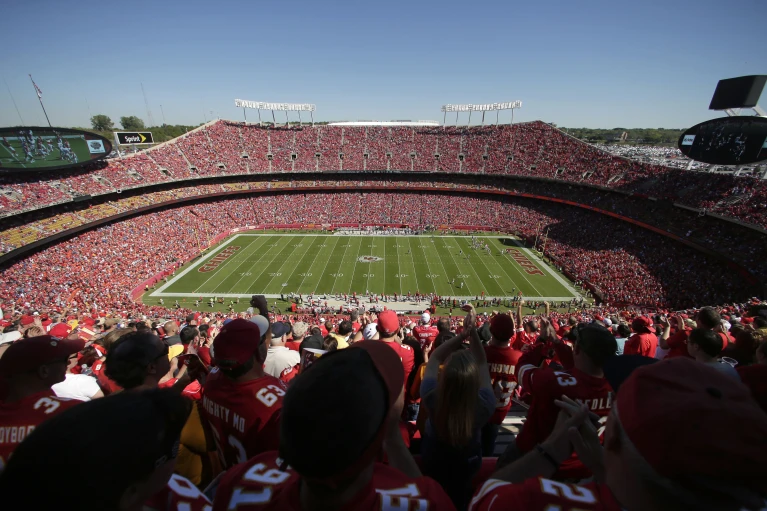JEFFERSON CITY, Mo. (AP) — Missouri lawmakers on Wednesday approved hundreds of millions of dollars of financial aid to try to persuade the Kansas City Chiefs and Royals to remain in the state.
House passage sends the legislative package to Republican Gov. Mike Kehoe, who called lawmakers into special session with a plea for urgent action. Kehoe is expected to sign the measures into law.
Missouri’s session paired two otherwise unrelated national trends — a movement for new taxpayer-funded sports stadiums and a reevaluation of states’ roles in natural disasters as President Donald Trump’s administration reassess federal aid programs.
The stadium subsidies already were a top concern in Missouri when a deadly tornado struck St. Louis on May 16, causing an estimated $1.6 billion of damage a day after lawmakers had wrapped up work in their annual regular session.
The Chiefs and Royals currently play football and baseball in side-by-side stadiums in Jackson County, Missouri, under leases that expire in January 2031. Jackson County voters last year defeated a sales tax extension that would have helped finance an $800 million renovation of the Chiefs’ Arrowhead Stadium and a $2 billion ballpark district for the Royals in downtown Kansas City.
That prompted lawmakers in neighboring Kansas last year to authorize bonds for up to 70% of the cost of new stadiums in Kansas to lure the teams to their state. The Royals have bought a mortgage for property in Kansas, though the team also has continued to pursue other possible sites in Missouri.
The Kansas offer is scheduled to expire June 30, creating urgency for Missouri to approve a counter-offer.
Missouri’s legislation authorizes bonds covering up to 50% of the cost of new or renovated stadiums, plus up to $50 million of tax credits for each stadium and unspecified aid from local governments. If they choose to stay in Missouri, the Chiefs plan a $1.15 billion renovation of Arrowhead Stadium.
Though they have no specific plans in the works, the St. Louis Cardinals also would be eligible for stadium aid if they undertake a project of at least $500 million.
Many economists contend public funding for stadiums isn’t worth it, because sports tend to divert discretionary spending away from other forms of entertainment rather than generate new income.
But supporters said Missouri stands to lose millions of dollars of tax revenue if Kansas City’s most prominent professional sports teams move to Kansas. They said Missouri’s reputation also would take a hit, particularly if it loses the Chiefs, which have won three of the past six Super Bowls.
“We have the chance to maybe save what is the symbol of this state,” Rep. Jim Murphy, a Republican from St. Louis County, said while illustrating cross-state support for the measure.
The legislation faced some bipartisan pushback from those who described it as a subsidy for wealthy sports team owners. Others raised concerns that a property tax break for homeowners, which was added in the Senate to gain votes, violates the state constitution by providing different levels of tax relief in various counties while excluding others entirely.
“This bill is unconstitutional, it’s fiscally reckless, it’s morally wrong,” said Republican state Rep. Bryant Wolfin.



